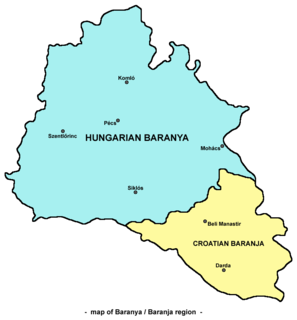 W
WBaranya or Baranja is a geographical and historical region between the Danube and the Drava rivers. Its territory is divided between Hungary and Croatia. In Hungary, the region is included into Baranya county, while in Croatia, it is included into Osijek-Baranja county.
 W
WBaranjsko Petrovo Selo is a settlement in the region of Baranja, Croatia. Administratively, it is located in the Petlovac municipality within the Osijek-Baranja County. Population is 525 people.
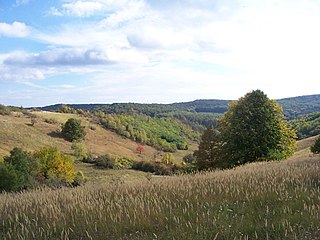 W
WBaranya is a county in southern Hungary. It is part of the Southern Transdanubia statistical region and the historical Baranya region, which was a county (comitatus) in the Kingdom of Hungary dating back to the 11th century. Its current status as one of the 19 counties of Hungary was established in 1950 as part of wider Soviet administrative territorial reform following World War II. It is bordered by Somogy County to the northwest, Tolna County to the north, Bács-Kiskun County and the Danube to the east, and the border with Croatia to the south.
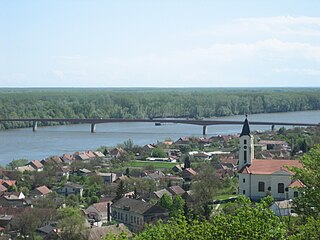 W
WBatina is a port village on the right bank of the Danube in Baranja, Croatia. Its elevation is 105 m. Administratively, it is located in the Draž municipality within the Osijek-Baranja County.
 W
WBeli Manastir is a town in eastern Croatia. It is the principal town of the Croatian part of Baranja, located in the Osijek-Baranja County.
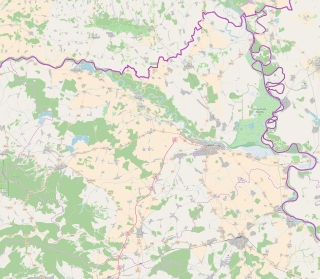 W
WBilje is a municipality in the Baranja region of Osijek-Baranja County, in north-eastern Croatia. It is 8 km northeast of Osijek, on the edge of the Kopački Rit nature park.
 W
WBolman is a settlement in the region of Baranja, Croatia. Administratively, it is located in the Jagodnjak municipality within the Osijek-Baranja County. Population is 450 people.
 W
WBranjin Vrh is a settlement in the region of Baranja, Croatia. Administratively, it is located in the Beli Manastir municipality within the Osijek-Baranja County.
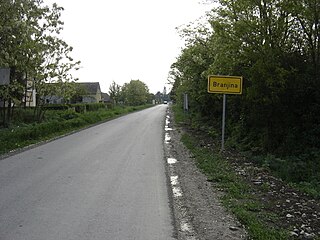 W
WBranjina is a settlement in the region of Baranja, Croatia. Administratively, it is located in the Popovac municipality within the Osijek-Baranja County. Population is 322 people.
 W
WČeminac is a village and municipality in Osijek-Baranja County, Croatia. There are 2,856 inhabitants in the municipality. Čeminac is underdeveloped municipality which is statistically classified as the First Category Area of Special State Concern by the Government of Croatia.
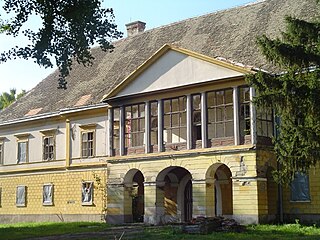 W
WDarda is a village and a municipality just north of Osijek, Croatia. It is located across the Drava river in Baranja. The population of the village is 5,323, with a total of 6,908 people in the municipality.
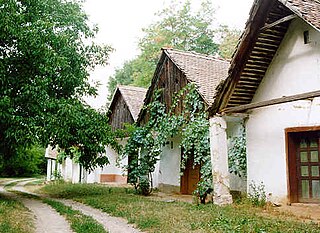 W
WDraž is a village and municipality in Osijek-Baranja County, Croatia. There are 2,767 inhabitants in the municipality.
 W
WGrabovac is a settlement in the region of Baranja in Croatia. It is in Čeminac municipality in Osijek-Baranja County. In 2011 its population was 872.
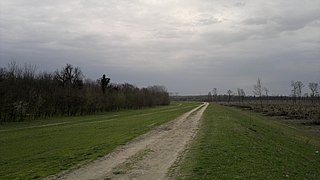 W
WJagodnjak is a village and a municipality in the Osijek-Baranja County, Croatia. Landscape of the Jagodnjak Municipality is marked by the Drava river with surrounding wetland forest and by Pannonian Basin plains with agricultural fields of corn, wheat, common sunflower and sugar beet.
 W
WJasenovac is a settlement in the region of Baranja, Croatia. Administratively, it is located in the Kneževi Vinogradi municipality within the Osijek-Baranja County. In the 2011 Croatian census it had a population of 35.
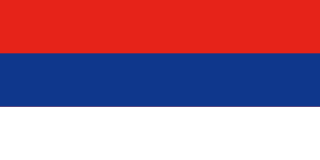 W
WThe Joint Council of Municipalities in Croatia is an elected consultative sui generis body which constitutes a form of cultural self-government of Serbs in the eastern Croatian borderland Danube region. The body was established in the initial aftermath of the Croatian War of Independence as a part of the international community' efforts to peacefully settle the conflict in self-proclaimed Eastern Slavonia, Baranya and Western Syrmia. Establishment of the ZVO was one of explicit provisions of the Erdut Agreement which called upon the United Nations to establish its UNTAES transitional mission.
 W
WKamenac is a settlement in the region of Baranja, Croatia. Administratively, it is located in the Kneževi Vinogradi municipality within the Osijek-Baranja County. Population is 177 people.
 W
WKaranac is a settlement in the region of Baranja, Croatia. Administratively, it is located in the Kneževi Vinogradi municipality within the Osijek-Baranja County. Population is 1,065 people.
 W
WKneževi Vinogradi is a village and municipality in Croatia. It is situated in the Osijek-Baranja County, on the southern slopes of Bansko Brdo, 11 km southeast of Beli Manastir. Its elevation is 103 m. Chief occupations of villagers include farming, viticulture, livestock breeding and dairy industry. At the time of 2011 census Kneževi Vinogradi was the only municipality in Croatia with relative majority of Hungarians of Croatia.
 W
WKneževo is a settlement in the region of Baranja, Croatia. Administratively, it is located in the Popovac municipality within the Osijek-Baranja County. Population is 970 people.
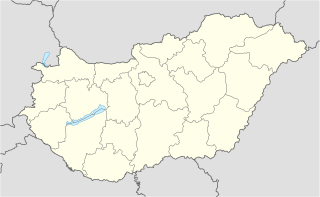 W
WKomló, is a town in Baranya county, Hungary. The name of the settlement is derived from the local crop of hops (komló), an ingredient of beer. By the 18th century a depiction of this plant running up a support already featured on the herald of the town.
 W
WKomlosaurus is an ichnogenus of theropod dinosaur from the Early Jurassic of Baranya, Hungary. The type species, Komlosaurus carbonis, was described by Kordos in 1983. The type remains come from the Mecsek Coal Formation, from the Middle Hettangian to the Early Sinemurian, and comprise several footprints.
 W
WKopačevo is a settlement in the region of Baranja, Croatia. Administratively, it is located in the Bilje municipality within the Osijek-Baranja County. Population is 608 people.
 W
WKopački Rit is a nature park in eastern Croatia in the municipalities of Bilje and Kneževi Vinogradi. It is located northwest of the confluence of the Drava and the Danube, situated at the border with Serbia. It comprises many backwaters and ponds along the Danube. It is one of the most important, largest and most attractive preserved intact wetlands in Europe.
 W
WKotlina is a settlement in the region of Baranja, Croatia. Administratively, it is located in the Kneževi Vinogradi municipality within the Osijek-Baranja County. The population is 334 people.
 W
WKozarac is a village in Croatia. Administratively, it is located in the Čeminac municipality within the Osijek-Baranja County. Population is 789 people.
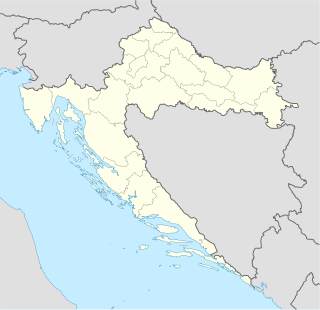 W
WLuč is a settlement in the region of Baranja, Croatia. Administratively, it is located in the Petlovac municipality within the Osijek-Baranja County. Population is 435 people.
 W
WLug is a settlement in the region of Baranja, Croatia. Administratively, it is located in the Bilje municipality within the Osijek-Baranja County. Population is 852 people.
 W
WMajške Međe is a settlement in the region of Baranja, Croatia. Administratively, it is located in the Jagodnjak municipality within the Osijek-Baranja County. Population is 82 people.
 W
WMece is a settlement in the region of Baranja, Croatia. Administratively, it is located in the Darda municipality within the Osijek-Baranja County. Population is 882 people.
 W
WMirkovac is a settlement in the region of Baranja, Croatia. Administratively, it is located in the Kneževi Vinogradi municipality within the Osijek-Baranja County. Population is 135 people.
 W
WMohács is a town in Baranya county, Hungary on the right bank of the Danube.
 W
WNovi Bezdan is a settlement in the region of Baranja, Croatia. Administratively, it is located in the Petlovac municipality within the Osijek-Baranja County. Population is 300 people.
 W
WNovi Bolman is a settlement in the region of Baranja, Croatia. Administratively, it is located in the Jagodnjak municipality within the Osijek-Baranja County. Population is 122 people.
 W
WNovo Nevesinje is a settlement in the region of Baranja, Croatia. Administratively, it is located in the Petlovac municipality within the Osijek-Baranja County. Population is 63 people.
 W
WOsijek-Baranja County is a county in Croatia, located in northeastern Slavonia and Baranja. Its center is Osijek; other cities include Đakovo, Našice, Valpovo, Belišće, Beli Manastir.
 W
WJanus Pannonius was a Croat-Hungarian Latinist, poet, diplomat and Bishop of Pécs. He was the most significant poet of the Renaissance in the Kingdom of Hungary and one of the better-known figures of Humanist poetry in Europe.
 W
WPécs is the fifth largest city of Hungary, located on the slopes of the Mecsek mountains in the south-west of the country, close to its border with Croatia. It is the administrative and economic centre of Baranya County. Pécs is also the seat of the Roman Catholic Diocese of Pécs.
 W
WThe University of Pécs is an institution of higher education in Hungary. Although the year 1367 appears in the seal of the university, it is not a successor of the medieval university founded in Pécs in 1367 by Louis I of Hungary. More than 20,000 students presently attend the University of Pécs, approximately 4,000 of whom are international students studying in English or German.
 W
WPetlovac is a village and municipality in the western part of Baranja, which comprise the northern part of Osijek-Baranja County in Croatia. Petlovac is underdeveloped municipality which is statistically classified as the First Category Area of Special State Concern by the Government of Croatia.
 W
WPócsa is a village and municipality in Baranya county, Hungary. Residents are Magyars, with minority of Germans.
 W
WRéka Castle ; is a ruined castle in Baranya county, Hungary. It has been identified as the possible place of refuge for members of the royal family of England in the eleventh century.
 W
WThe Roman Catholic Diocese of Pécs is a Diocese of the Latin Rite of the Roman Catholic church in Hungary. The Cathedral of Pécs is dedicated to Saint Peter and Saint Paul.
 W
WSásd is a town in Baranya county, Hungary. The total population of Sásd in 2015 was 3094.
 W
WŠećerana is a settlement in the region of Baranja, Croatia. Administratively, it is located in the Beli Manastir municipality within the Osijek-Baranja County.
 W
WSiklós is the 4th largest town in Baranya county, Hungary. 45°51′19″N 18°17′55″E.
 W
WŠirine is a settlement in the region of Baranja, Croatia. Administratively, it is located in the Petlovac municipality within the Osijek-Baranja County. Population is 58 people.
 W
WŠokci are a South Slavic ethnic group native to historical regions of Baranya, Bačka, Slavonia and Syrmia. These regions today span eastern Croatia, southwestern Hungary, and northern Serbia. They primarily self-identify as a subgroup of Croats, and therefore they are not considered a separate ethnicity in Croatia and elsewhere.
 W
WSudaraž is an uninhabited settlement in the region of Baranja, Croatia. Administratively, it is located in the Petlovac municipality within the Osijek-Baranja County.
 W
WSuza is a settlement in the region of Baranja, Croatia. Administratively, it is located in the Kneževi Vinogradi municipality within the Osijek-Baranja County. Population is 636 people.
 W
WSzigetvár is a town in Baranya County in southern Hungary.
 W
WTikveš is a settlement in the region of Baranja, Croatia. Administratively, it is located in the Bilje municipality within the Osijek-Baranja County. Population is 29 people.
 W
WTopolje is a settlement in the region of Baranja, Croatia. Administratively, it is located in the Draž municipality within the Osijek-Baranja County. Its population is 473 people.
 W
WTorjanci is a settlement in the region of Baranja, Croatia. Administratively, it is located in the Petlovac municipality within the Osijek-Baranja County. Population is 267 people.
 W
WVardarac is a settlement in the region of Baranja, Croatia. Administratively, it is located in the Bilje municipality within the Osijek-Baranja County. Population is 630 people.
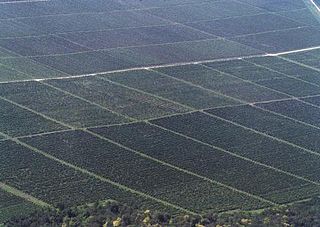 W
WVillány is a town in Baranya county, Hungary that is famous for its wine. Residents are Hungarians, with minority of Serbs.
 W
WZeleno Polje is a settlement in the region of Baranja, Croatia. Administratively, it is located in the Petlovac municipality within the Osijek-Baranja County. Population is 43 people.
 W
WZlatna Greda is a settlement in the region of Baranja, Croatia. Administratively, it is located in the Bilje municipality within the Osijek-Baranja County. Population is 12 people.
 W
WZmajevac is a settlement in the region of Baranja, Croatia. Administratively, it is located in the Kneževi Vinogradi municipality within the Osijek-Baranja County. The population is 974 people.